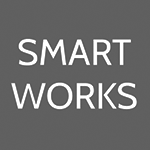Did you know that you can find many recruiters on social media? This includes our own banking and financial recruitment company.
This is because many companies and recruiters are using social media to find the perfect candidates for their roles.
Which means it’s more important now than ever before to make sure you’re using social media to accurately represent yourself when hunting for a job.
Think of it this way: Your CV will only be seen by select recruiters and the company you’ve applied with, but your online profiles can increase your visibility and allow you to be seen by more potential employers in the world.
It provides you with the opportunity to put your experience into the public domain, and network with professionals in your field and elsewhere.
So let’s start with the most well known social media site for job seekers:
LinkedIn has over 500 million users worldwide, with 40% of those users logging in each month.
Whilst these may not be quite the level of platforms like Facebook and Twitter, LinkedIn is one of the most popular B2B networking social media sites out there.

- What does this mean for you?
Well it means you shouldn’t underestimate its importance, especially when it comes to talking to other professionals in your sector, as it can really aid in your job search.
- What can you do on this platform to help you stand out?
Aside from connecting with friends and colleagues, you’ll want to build a strong base of connections.
You can do this by connecting with thought leaders, those in companies you would like to work for, and with people you share similar interests with.
This will ensure your feed will be filled with relevant content, most importantly, job openings.
Think of your LinkedIn profile as an online CV that anyone has access to.
But with this CV you are able to ask questions, show your knowledge about your sector through posts, and participate in meaningful discussions.
You can even use tools like recommendations to allow you to gain testimonials for past roles.
These recommendations can really make you stand out for those who are searching.
- Alternatively, you can also look for roles yourself on this platform.
LinkedIn offers a section which allows you to check out recommended job listings.
You can also connect with recruiters in your area.
By connecting with recruiters you can be offered jobs that are not yet advertised, or follow their feeds for roles in your sector.
Pretty good if you ask us!
Using LinkedIn as a part of your job hunting strategy?
Why not check out our LinkedIn company page to be updated on any roles?
Over 500 million tweets are sent each day.
That’s a crazy number of tweets.
According to Hootsuite it works out to 5,787 tweets every second!
Not to mention 75% of B2B businesses market on Twitter, making it a prime place to connect and get to know employers.

- What does this mean for you?
In order to get the maximum impact from Twitter in your job search you can use the platform to:
+ Network with industry insiders.
+ Build your own personal brand.
+ Research potential companies and interviewers.
+ Find hidden job leads.
- What can you do on this platform to help you stand out?
A good place to start would be by following any companies you would like to work with, and by affiliation any amazing recruitment companies.
If you want to curate a personal feed of companies, consider creating a private list.
This will allow you to have a separate list from any followers outside of your job hunt, whilst also keeping updated with a specialised job feed.
You can also use the list function for other areas, such as thought leaders and industry influencers.
This can provide you with content to share to your followers, and to keep updated on industry news.
Aim to build a following that will be interested in your content, and as a result, your word on sector topics.
It is said that 70% of employers snoop candidates’ social media profiles before making a hiring decision.
So ensure that your profile isn’t filled with drunken photos, or rants about your current employers, and you should be good to go!
- To round up?
+ Be selective about the type of content that you post on Twitter.
+ Create specialised lists to help with your job search.
+ Follow recruiters and companies relevant to your sector.
+ And post regularly!
As one of the most well known social media platforms around, Facebook has around 1.49 billion daily active users, meaning it’s not to be ignored!
With the addition of their job board section, Facebook can be a valuable part of your job search.

- What does this mean for you?
With that many daily users, we guarantee your ideal employer will be on here.
They may be using it in their down time, or utilising the Facebook page features, but they’re most likely using it.
- What can you do on this platform to help you stand out?
Ideally, you’ll want to start off by ensuring your profile is not showcasing the wrong features.
Facebook stresses that potential employers will only see public information if they’re not connected with you.
So how can you use this to your advantage?
What do you want a recruiter or employer to see?
We’d recommended including your skills and jobs in the about tab of your profile.
You could even consider adding life events that convey interesting and relevant information.
Alternatively, you could create a Facebook page.
This would allow you to only post content that is relevant to your career, and as a result, your job search.
You could even do an advert showing the fact you’re looking for a role…just make sure your current employers are not included in the advert settings.
You’ll also want to consider following any potential employers on their Facebook page and engaging with their content.
Another fantastic feature of Facebook is their newly launched job board, which employers and recruiters can post to when jobs come up.
Our final notes?
With the use of these social media tips, and an excellent banking and financial services recruitment company, we’re sure you’ll have your new role in no time at all.
However, if you’re still looking, remember you can speak to our team about what role you may be best suited to, or view our current opportunities.








